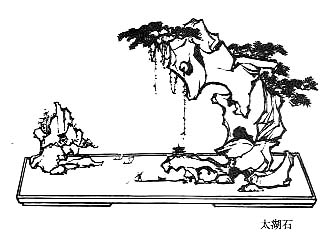詩
經
Shi Jing 
 – The Book of Odes
– The Book of Odes
The oldest collection of Chinese poetry, more than three hundred songs, odes and hymns. Tr. Legge (en) and Granet (fr, incomplete).
Shijing II. 1. (169)
Solitary stands the russet pear tree,
With its fruit so bright.
The king's business must not be slackly performed,
And the days are prolonged with us one after another.
The sun and moon are in the tenth month.
My woman's heart is wounded ;
My soldier might have leisure [to return] !
Solitary stands the russet pear tree,
With its leaves so luxuriant.
The king's business must not be slackly performed,
And my heart is wounded and sad.
The plants and trees are luxuriant,
But my heart is sad.
O that my soldier might return !
I ascended that hill in the north,
To gather the medlars.
The king's business must not be slackly performed,
And our parents are made sorrowful.
His chariot of sandal wood must be damaged ;
His four horses must be worn out ;
My soldier cannot be far off.
They have not packed up, they do not come ;
My sorrowing heart is greatly distressed.
The time is past, and he is not here,
To the multiplication of my sorrows.
Both by the tortoise shell and the reeds have I divined,
And they unite in saying he is near.
My soldier is at hand !
Legge 169

The Book of Odes – Shi Jing II. 1. (169) – Chinese on/off – Français/English
Alias Shijing, Shi Jing, Book of Odes, Book of Songs, Classic of Odes, Classic of
Poetry, Livre des Odes, Canon des Poèmes.
The Book of Odes, The Analects, Great Learning, Doctrine of the Mean, Three-characters book, The Book of Changes, The Way and its Power, 300 Tang Poems, The Art of War, Thirty-Six Strategies
Welcome, help, notes, introduction, table.
Index – Contact – Top
